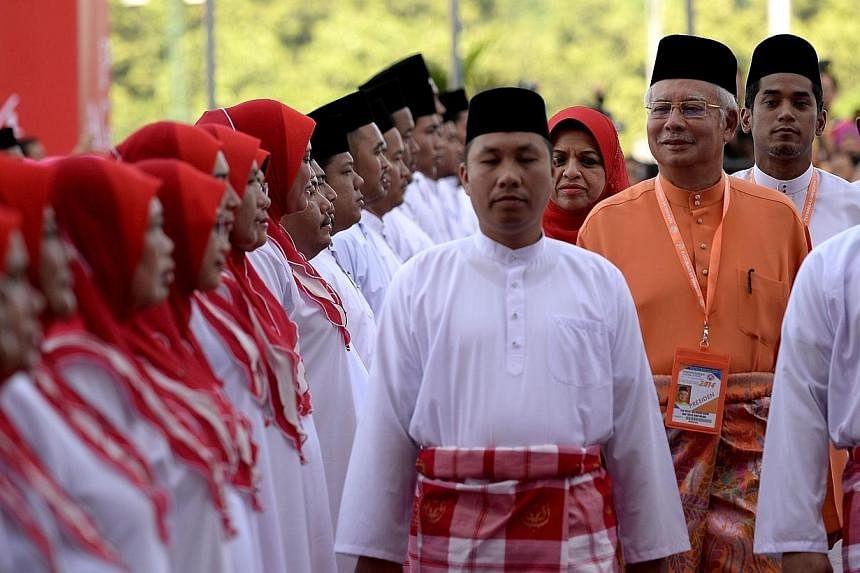Malaysia's Prime Minister Najib Razak on Thursday (Nov 27, 2014) abandoned plans to repeal a controversial sedition law, even as critics warned of a lurch back to authoritarian tactics to clamp down on criticisms of the government.
Here's what you should know about the law:
1. What is Sedition Act?
The Sedition Act was introduced by the British colonial government in 1948 to quell a communist rebellion. It outlaws speech deemed to incite unrest, racial or religious tensions, or insult Muslim-majority Malaysia's ceremonial Islamic royalty.
Those found guilty of sedition could face fines and jail terms of up to three years.
Mr Najib, who is also president of the Umno party, vowed in 2012 to abolish the Sedition Act which he said represented a "bygone era", promising to move away from his regime's authoritarian tactics in a bid to shore up dwindling voter support. He said that the law would be replaced with a National Harmony Act.
2. What critics say about the law?
Critics accuse the government of using the Sedition Act to intimidate and silence an opposition movement that is threatening Umno's hold on power. More than a dozen people - mostly opposition politicians, including leader Anwar Ibrahim - have been investigated, charged or convicted for sedition this year.
The crackdown has been widely condemned by rights groups and criticised by the US Embassy in Malaysia.
3. What Mr Najib says now?
He announced at the Umno party general assembly that the Sedition Act would stay. "As prime minister, I have decided that the Sedition Act will be maintained," he said. He added that the law will "be strengthened and made more effective" after feedback from Umno supporters, non-governmental groups and other Malaysians. New clauses will be added to defend the sanctity of Islam and penalise those who call for the separation of Sabah and Sarawak states from Malaysia.
4. Why the turnaround?
Observers say Mr Najib is under pressure to boost his standing in the 3.5 million strong Malay-based party after leading the ruling coalition to its worst-ever showing in last year's election and drawing criticism from former leader Mahathir Mohamad. The Sedition Act has broad support within the Malay community, according to Umno Secretary General Tengku Adnan Mansor.
5. What supporters say?
Deputy Umno president Muhyiddin Yassin, who has led the charge to protect the Sedition Act, has hailed Mr Najib's firm stance, saying he "has proven that he is a leader who is sensitive to the views from party members at all levels".
Mr Muhyiddin has also dismissed claims that the prime minister has gone back on his vow to repeal the Sedition Act and to replace it with a National Harmony Act.
"It is not a turning away from the transformation and reforms. We can improve the legislation without necessarily abolishing it."
Defence Minister Hishammuddin Hussein, meantime, says "Malaysia needs to retain the Sedition Act to protect its own national security."
6. How critics react to the announcement?
Opposition leader Anwar Ibrahim says the decision was a "regressive" move and it will plunge the country back into the "days of the Internal Security Act" - a reference to the abolished law that allowed for indefinite detention without trial.
Human Rights Watch calls the move a "major reversal on human rights."
"Since the Sedition Act gives the government the discretion to declare almost anything seditious, social activists and political opposition figures are likely to face a renewed crackdown that will be discriminatory and politically motivated," says Mr Phil Robertson, the group's deputy Asia director.
Politcal analyst James Chin says the government is "sending a strong signal to non-Malays and to the Chinese that if you don't support Umno, Umno will keep moving to the right and you will regret it."
SOURCE: AFP, BBC, BLOOMBERG

